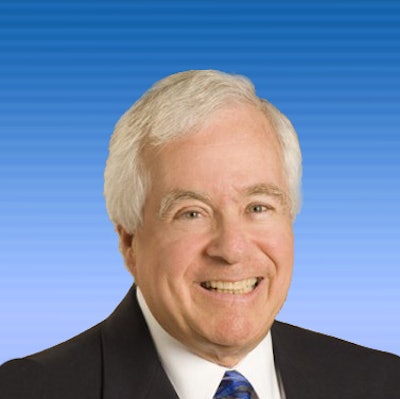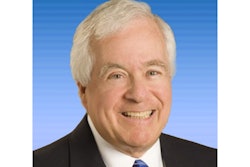
As a dentist who may be involved in the throes of divorce, you hope that you are in a state that utilizes equitable distribution to assist a court.
Determining what part of the dental practice is to be distributed to which of the spouses when the decision is made by the judge is loaded with all kinds of information that the court must analyze. When dental practices are involved in states that use equitable distribution guidelines, there is typically a section in the dental practice valuation that would be presented to the court as proof for value. It almost always classifies the asset in the dental practice report with the most value as the goodwill.
This figure may represent 75% of the value of the dental practice or more as equipment, furnishings, and other assets that comprise the balance. After the presentation of the dental practice valuation to the court, the next area of presentation would be to list the attributes of goodwill that pertain to personal goodwill as well as those attributes that pertain to enterprise or the goodwill of the dental practice itself.
There are 40 states that are considered equitable distribution states, where personal goodwill is not a marital asset and enterprise goodwill is considered a marital asset. There are lists of attributes for each. A scientific approach to the determination of each can be found by using the Multiattribute utility method. It is a court-tested approach that removes the guesswork and defines each attribute and segregates the personal versus the enterprise goodwill.
What is goodwill, and what are the attributes of it? What represents personal goodwill, and what represents enterprise goodwill?
"Goodwill is an intangible asset that arises as a result of a business name, reputation, customer or patient loyalty, location, and similar factors not separately identified." This quote comes directly from the Multiattribute utility method, commonly known as MUM, guidelines for attributes listed under personal versus enterprise goodwill. The MUM guidelines list of attributes is sound and should avoid confrontation over standards that are acceptable to the court or to a mediator. For some of the attributes of personal goodwill, which is a nonmarital asset, probably the most important one is the lack of transferability.
This means that the dentist in question cannot have his or her ownership transferred other than in a transition (sale) of ownership interest where there is a specific designation of that dentist's interest. It is almost always also recognized with an executed noncompete agreement so the owner doesn't open a new practice and compete with what was just sold. This is one of the most valuable assets that the dentist owns and is not available for distribution in a divorce.
Another personal attribute is the ability to use the judgment and decision-making ability and reputation of the dentist in question to forestall anyone from denying those attributes as being of a personal nature and of being aligned with personal goodwill. A court will not deny that the owner is the responsible party when deciding to expand the practice and open another office. He or she is the one who will guarantee the loan when the request goes to the lender. When the practice is sold or transferred in some manner, the release of the personal signature from liability is foremost on the owner's mind.
From a personal goodwill attribute standpoint, the health, work ethic, and age of the dentist is another critical attribute of goodwill that cannot be pointed to enough. The allocation between personal goodwill and enterprise goodwill is certainly fully dependent on the ability of the dentist to be available not just for the clinical side of the dental practice but also for the administrative side of it. Almost all of the popular dental service organizations (DSOs) and other service organizations of a dental nature have dedicated clinical divisions and dedicated nonclinical or administrative divisions.
Are the websites, signage, and other publicly visible documents prepared with the personal name of the owner?
This is an important attribute of personal goodwill. If the above information is touting the enterprise itself and the name of the owner is nowhere to be found, then the attribute is probably much more enterprise goodwill than personal goodwill. The recognition of the owner is important so the public can relate to whom a complaint or a compliment can be offered, among other things.
How many dental offices are there, and what are the names of the offices?
If there is one dental office, it tends to be thought of as personal goodwill, since the owner/dentist is at the site and can answer patient and employee questions immediately. Many offices tend to be allocated to the enterprise goodwill, especially if the owner is not just the administrator but also a clinician.
He or she must be found at a particular office, stop what he or she is doing, and then relay the answer. If the name of the office or offices use the name of the owner in that name, this definitely makes the intent of the goodwill attribute become personal and not that of an enterprise attribute.
Are the inbound referrals offered first to the owner and then to others at the office, or is there another system for allocating new patients? Is the phone answered with the name of the practice plus the owner' name?
These are definitely attributes of personal goodwill if the name of the owner is given as the first referral source and if the name of the practice and the owner is given by those answering the phone. To the degree the name of the owner is omitted, then the personal attribute of the owner lessens and that of the enterprise goodwill has added significance to it.
There are many other attributes of personal goodwill and enterprise goodwill. Another article by this author will add to this list and amplify that some attributes may be part of personal goodwill and enterprise goodwill. The attributes in this article are a good start to understanding the differences between them and why there are significant arguments for each.
Bruce Bryen is a certified public accountant with over 45 years of experience. He specializes in providing litigation support services to dentists, with valuation and expert witness testimony in matrimonial and partnership dispute cases. Bryen assists dentists with financial decisions about their practice, practice sales, evaluating whether to join a DSO, practice evaluation during divorce proceedings, and questions about the future or financial health of dental practices. He can be reached at [email protected].
The comments and observations expressed herein do not necessarily reflect the opinions of DrBicuspid.com, nor should they be construed as an endorsement or admonishment of any particular idea, vendor, or organization.



















